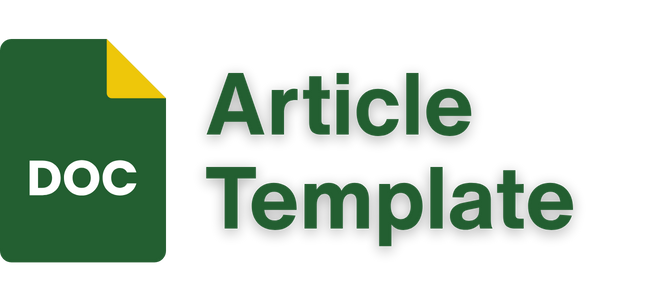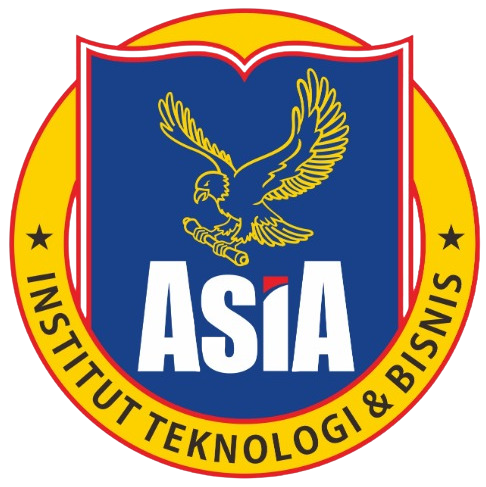Sustainable Human Resource Management Model to Enhance The Performance of Non-Profit Organizations
The Context of Zakat Institutions in Indonesia
DOI:
https://doi.org/10.32815/jibeka.v19i3.2388Keywords:
Sustainable Human Resource Management, Lembaga Amil Zakat, Non Profit Organization, Maqashid al Shariah, Sharia governanceArticle Metrics
Abstract
This study aims to propose a Sustainable Human Resource Management (SHRM) model for Lembaga Amil Zakat (LAZ) in Indonesia, intended to bridge the gap between zakat potential and its realization through the professionalization of amils based on Islamic values and Sharia governance. Drawing upon a systematic literature review (2018–2025), the study synthesizes the indicators, drivers, barriers, and benefits of SHRM. The model emphasizes the reciprocal fit between strategy and HR practices, the integration of economic, social, and environmental sustainability dimensions, and several key enablers: Sharia governance, Islamic work ethics, digital HRM, national HR certification (SKKNI), and Unit Pengumpul Zakat (UPZ) networks. Core practices include mission-based recruitment, key performance indicators (KPIs) that integrate financial performance, social impact, and sharia compliance, certified training programs, proportional and transparent compensation, and structured volunteer management. The phased implementation is designed to enhance competencies, service quality, digital efficiency, and accountability, ultimately leading to increased collection growth, improved distribution accuracy, enhanced HR retention, and increased public trust.
Downloads
References
Hasan A, Hassan R, Engku Ali ERA, Engku Ali EMT, Abduh M, Noordin NH. A proposed human resource management model for zakat institutions in Malaysia. ISRA Int J Islam Financ. 2019;11(1):98–109.
Foulkes FK. Strategic Human Resources Management: A Guide for Effective Practice. New Jersey: Prentice Hall, NJ.; 1986.
Huynh Thi Thu S, Pham M, Luc HN. Leveraging digital human resource management to optimize organizational performance in Vietnam. Humanit Soc Sci Commun [Internet]. 2025;12(1):1–12. Available from: http://dx.doi.org/10.1057/s41599-025-05113-2
El Saeed M, Maarouf HM, Younis RAA. The role of HRM-service quality in the relationship between electronic human resource management and perceived performance. Futur Bus J [Internet]. 2025;11(1):1–13. Available from: https://doi.org/10.1186/s43093-024-00415-4
Negt P, Haunschild A. Exploring the gap between research and practice in human resource management (HRM): a scoping review and agenda for future research [Internet]. Vol. 75, Management Review Quarterly. Springer International Publishing; 2025. 837–879 p. Available from: https://doi.org/10.1007/s11301-023-00397-7
Almaaitah MF, Almajali TA, Taamneh MM, Al-Quran AZ, Alserhan HF. How job crafting enhances job satisfaction: the moderating role of perceived organizational support in Jordan’s public healthcare sector. Discov Sustain [Internet]. 2025;6(1). Available from: https://doi.org/10.1007/s43621-025-01248-z
Aplin-Houtz MJ, Ugwu LE, Leahy S, Standers M, Brewer J. Crafting Control: Exploring the Impact of Machiavellianism on Job Crafting and Job Satisfaction [Internet]. Employee Responsibilities and Rights Journal. Springer US; 2024. Available from: https://doi.org/10.1007/s10672-024-09511-7
BAZNAS. Outlook Zakat di Indonesia. Badan Amil Zakat Nasional (BAZNAS). 2024.
Kemenag RI, BAZNAS. Kajian Pemetaan SDM LAZ 2024. 2024;1–130. Available from: https://www.puskasbaznas.com/publications/books/1955-kajian-pemetaan-sdm-laz-2024
Ridder HG, McCandless A. Influences on the architecture of human resource management in nonprofit organizations: An analytical framework. Nonprofit Volunt Sect Q. 2010;39(1):124–41.
Garza-Reyes JA. Lean and green-a systematic review of the state of the art literature. J Clean Prod. 2015;102(0):18–29.
Kumar A, Bhaskar P, Nadeem SP, Tyagi M, Garza-Reyes JA. Sustainability adoption through sustainable human resource management: A systematic literature review and conceptual framework. Int J Math Eng Manag Sci. 2020;5(6):1014–31.
Purgał-Popiela J. Sustainability in human resource management practices used by small and medium-sized enterprises: a systematic review. Cent Eur Manag J. 2025;33(1):87–106.
Setiawati AP, Mujanah S, Sumiati S. Sustainable Hr Practices Through Inclusive Talent Development in Sharia Banking. J Entrep. 2024;3(July):50–62.
Järlström M, Saru E, Vanhala S. Sustainable Human Resource Management with Salience of Stakeholders: A Top Management Perspective. J Bus Ethics. 2018;152(3):703–24.
Ramgolam G, Ramphul N, Chittoo H. Sustainable Human Resource Management—A Systematic Literature Review and Directions for Future Research [Internet]. Journal of the Knowledge Economy. Springer US; 2025. 11407–11444 p. Available from: https://doi.org/10.1007/s13132-024-02273-5
Cohen, E.; Taylor, S.; Muller-Camen M. SHRM Foundation’s Effective Practice Guidelines Series HRM’s Role in Corporate Social and Environmental Sustainability. SHRM Found Eff Pract Guidel Ser [Internet]. 2012;3(3):1–55. Available from: www.shrmfoundation.org
Fesharaki F, Sehhat S. Islamic human resource management (iHRM) enhancing organizational justice and employees’ commitment: Case of a Qard al-Hasan bank in Iran. J Islam Mark. 2018;9(1):204–18.
Yadav M, Kumar A, Mangla SK, Luthra S, Bamel U, Garza-Reyes JA. Mapping the human resource focused enablers with sustainability viewpoints in Indian power sector. J Clean Prod. 2019;210:1311–23.
Dźwigol H, Dźwigoł-Barosz M, Zhyvko Z, Miśkiewicz R, Pushak H. Evaluation of the energy security as a component of national security of the country. J Secur Sustain Issues. 2019;8(3):307–17.
Iqbal Q. The Era of Environmental Sustainability: Ensuring That Sustainability Stands on Human Resource Management. Glob Bus Rev. 2020;21(2):377–91.
Piwowar-Sulej K. Core functions of Sustainable Human Resource Management. A hybrid literature review with the use of H-Classics methodology. Sustain Dev. 2021;29(4):671–93.
Umar M. MANAJEMEN STRATEGIS PADA ORGANISASI NON PROFIT (ONP). J Lentera Kaji Keagamaan, Keilmuan Dan Teknol. 2021;17:166–80.
Lu Y, Zhang MM, Yang MM, Wang Y. Sustainable human resource management practices, employee resilience, and employee outcomes: Toward common good values. Hum Resour Manage. 2023;62(3):331–53.
Ren S, Cooke FL, Stahl GK, Fan D, Timming AR. Advancing the sustainability agenda through strategic human resource management: Insights and suggestions for future research. Hum Resour Manage. 2023;62(3):251–65.
Abdallah MA. The Impact of Emotional Intelligence on Job Satisfaction : a study on Lebanese non-profit organizations. Int J Organ Anal. 2025;XVI(SI):276–9.
Mahade A, Elmahi A, Alomari KM, Abdalla AA. Leveraging AI-driven insights to enhance sustainable human resource management performance: moderated mediation model: evidence from UAE higher education. Discov Sustain [Internet]. 2025;6(1). Available from: https://doi.org/10.1007/s43621-025-01114-y
Yadav N, Sahu NC, Sahoo D, Yadav DK. Analysis of barriers to sustainable tourism management in a protected area: A case from India. Benchmarking An Int J. 2018;25(6):1956–76.
Yuniyanti AT, Nabila K, Muklas M. Strategi Manajemen Sumber Daya Manusia Dalam Meningkatkan Pelayanan Laboratorium Amil Zakat Infaq Dan Shadaqah Manajemen Dakwah (Lazis Md) Universitas Islam Negeri Syarif Hidayatullah Jakarta. J Ilm Wahana Pendidik [Internet]. 2024;10(14):24–36. Available from: https://doi.org/10.5281/zenodo.13234023
Tanjung A, Panggabean SA. Manajemen Sumber Daya Manusia pada Lembaga Amil Zakat Provinsi Sumatera Utara. J Ekon Bisnis, Manaj dan Akunt. 2023;3(3):855–62.
Tahira H, Arshad Z. Comparative performance of Islamic and conventional insurance companies in Pakistan. IOSR J Bus Manag. 2014;16(6):33–45.
Downloads
Published
How to Cite
Issue
Section
License
Copyright (c) 2025 Meutia Dewi, Dhian Rosalina, Yenni Samri Juliati Nasution, Marliyah Marliyah

This work is licensed under a Creative Commons Attribution-ShareAlike 4.0 International License.
Happy reading. Don't be shy to cite








